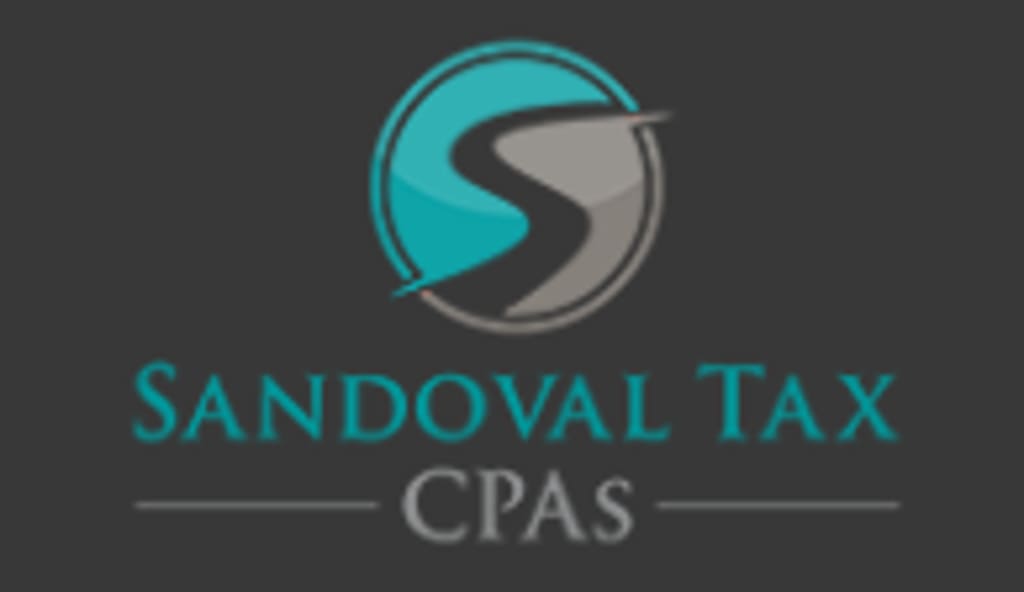How to Be Tax-Wise By Starting a Business
Joel Sandoval – Your Personal CPA

Ordinary people turn into entrepreneurs every day.
Over the past 12 years I’ve been a CPA, I’ve seen students, single mothers, recent graduates, retirees, and nine-to-fivers get bitten by the ambition bug and start their own businesses. Often, they begin modestly, working from home and taking baby steps. Most keep their day jobs or maintain as high a degree of normalcy as possible before they take the plunge and go full-time.
If you’re considering striking out on your own or are already running your own business, I wish you the best, or continued success, whichever the case may be. Of course, most of us define business success in several ways — how much revenue it makes, recognition from our peers, the positive impact it has on the lives of customers, and so on. While all of these are excellent yardsticks of measurement, there’s an entirely different factor far too many entrepreneurs ignore or are unaware of at all.
Tax sheltering strategies are a powerful tool for wealth creation
The fact is, getting into business is probably the easiest and is certainly the best thing that you can do to reduce your exposure to taxation. Due to this single motivation alone, I encourage everyone I know (and my clients especially) to let capitalism fever infect them and become an entrepreneur who owns their own business. And this is true even if you are entirely satisfied with your current employment, happy with your career trajectory, and don’t necessarily want to eventually hire employees or even bother to grow your business. Let me explain.
When I was launching my career as a CPA in my late twenties, I knew it made sense for me to gain experience working with other CPAs at accounting firms. So that’s what I did, starting as an accounting associate and then an audit accountant before graduating to accounting and finance manager working directly with a CFO in a real estate investment firm. But despite the advantage of having client accounts served up to me and the security of a regular paycheck, my thoughts never strayed from the desire of owning a thriving CPA firm of my own.
Beyond wanting to be the captain of my destiny, my ambitions had ulterior motives completely removed from the challenge of owning and running a successful business. And that would be the tax advantages and tax savings that would stem from my being in business. It’s a strategy I have further refined over the past several years and which I advocate each of my clients adopt, with very few and highly specific exceptions. I call it “living out of your C-Corp”.
Here’s how my journey toward minimal tax exposure evolved. It’s one I strongly suggest you consider immediately and embark on yourself.
I remember laboring by day as a hired hand at accounting firms, all the while planning how I would build my personal wealth by starting a side business. At first this took the form of a modest business preparing tax returns for family members. Although I charged them little and the income was almost inconsequential compared to my day job salary, I gradually realized the true value of my little tax enterprise. The point is, going into business for yourself is not simply useful, it is mandatory if you want to shelter your income from taxation.
Here are the immediate benefits you will enjoy the minute you launch your business, regardless of your degree of activity or its focus:
Your tax advantages kick in immediately
Once you start a side business, from Uncle Sam’s perspective you are now in business, even if you’re not generating a whole lot of sales (or revenue). According to the Internal Revenue Code, if you make income, even from being a freelancer or as a worker in the so-called ‘gig economy’, you are now a business owner. This entitles you to deduct business expenses. Done right, a good deal of what you would consider ‘personal expenses’ suddenly can be treated as business expenses.
Deduct everything (within reason)
What sort of expenses are legitimately allowed as business expenses? Everything from your mobile phone, Internet connectivity, fuel (or charging) costs for your vehicle, including maintenance, business-related travel, dining, and entertaining, a portion of your mortgage or rent, even clothing and personal improvement expenditures. All of these are ways you currently spend your income, whether this money originates from a salary, investments, rental income, etc. Now that you have a business and can state on your tax filings that you’re an independent contractor, or are self-employed, or a business owner, the expenses I just mentioned, and potentially many more, become a deduction.
The reason being in business affords you these advantages mostly boils down to how our tax system is structured.
The high cost of withholdings
As a W-2 employee, the I.R.S. allows you very few deductions because you are not in business. Your status as an employee of someone else’s business does not work in your favor from a taxation standpoint — regardless of how hard you work. While this may not seem fair, it’s purely due to the manner in which taxes are automatically collected, even before you file your annual tax return. Of course, I’m talking about withholdings. There are a variety of state, federal, and local withholdings and they really take a bite out of your gross income. Here’s the list of withholdings you can find on every paycheck stub you scrutinize:
Federal Income Tax Withheld
State Income Tax Withheld
Local Income Tax Withheld
FICA and State Insurance Taxes:
Social Security
Medicare
State Disability Insurance Tax
State Unemployment Insurance Tax
State Family Leave Insurance Tax
State Workers Compensation Insurance Tax
There’s really very little you can do to affect the amount of these withholdings as a percentage of your gross income. Yes, the number of dependents you state on your W-9 when you’re hired will lessen these withholdings. But, if you have few dependents or only yourself to declare, there’s nothing you can do until you file your return. This is why as a W-2 employee, most people get a refund every year because they overpaid based on the withholdings collected from their gross income.
Play by the rules
As a business owner, there are no withholdings attached to the salary you pay yourself. And that’s the key benefit of having your own business — you are both the owner and the employee. Does this dynamic offer you a host of opportunities to shelter your income, deduct expenses, and generally keep more of the money you earn? Yes, absolutely. However, it can also tempt some to declare expenses which don’t qualify, bend the rules too far, and ultimately raise red flags at the I.R.S., potentially triggering an audit.
If not done correctly, efforts to reduce tax exposure can slide into the murky territory of tax evasion, resulting in the I.R.S. recalculating your true taxes due and levying penalties, interest, and even criminal prosecution. While penalties cannot exceed 25% of any unpaid taxes, the debt can pile up quickly and become burdensome. No one wants, nor needs that degree of unpleasantness in their life. Unless you have tax law training and accounting experience, it’s wise to meet with a professional tax advisor. As in many areas involving personal finance, doing it right from the get-go can save a great deal of heartache and wasted money down the road. New tax laws are passed and allowable deductions change, making it easy to miss out on advantages which might apply to your specific case. Tax accountants spend years studying tax law and CPAs licensed in California must complete 80 hours of continuing professional education every two years.
Like a lot of things in life, using a business to your best financial advantage is not a purely black and white proposition. But knowing the ins-and-outs of the grey areas can ensure you do it legally and avoid unnecessary problems.
Joel’s tip of the day
Did you know there are tax-deductible insurance premiums?
For example, the I.R.S. allows the self-employed to deduct the cost of disability insurance, but only the kind which pays for business overhead expenses caused by injury or sickness. Policies which pay for lost earnings are not tax deductible. If you don’t have group health coverage from an employer, your Health Savings account (HAS) contributions are tax deductible up to the maximum (currently $3,650 for single coverage and $7,300 for a family plan). You also won’t pay taxes on the growth of your account nor if you make withdrawals for qualified medical expenses.
There are other tax deductible business related premiums such as health, dental, and vehicle insurance provided you’re self-employed. Life insurance premiums are typically not tax deductible, although there are exceptions. Consult with your CPA or a tax accountant to find out more.
About Joel
Joel Sandoval, CPA is the owner and founder of Sandoval Tax based in Bakersfield, California. Joel has a passion for helping small businesses with all aspects of their accounting needs, whether it’s helping business owners save money on taxes, providing tax-ready financial statements with bookkeeping, or training and consulting with QuickBooks. Joel has a deep care for customer service and is always striving to make sure that his clients are happy. He will go the extra-mile to make sure that his clients feel they are in good hands when it comes to their needs in bookkeeping and taxes.
Joel is a licensed Certified Public Accountant, CPA in the State of California, with a background in audit for public accounting firms, and finance & accounting for private companies in the oil & gas and real estate development industries. Joel graduated from California State University Bakersfield, CSUB in 2010 with a Bachelor’s of Science in Business with a concentration in accounting. He graduated with honors receiving the summa cum laude award, the highest distinction at the university level.
Joel is also a QuickBooks ProAdvisor and offers consulting and training for QuickBooks. He is an expert when it comes to accounting and will make sure that you have tax or GAAP (General Accepted Accounting Principles) ready financial statements. He offers full-service bookkeeping for small businesses so they can focus on growing their business. He presents monthly financial statements which include profit & loss and balance sheet and will review the financial health of the company with the small business owners. Joel has a passion for helping small businesses grow and reducing their financial stress.
For more info on Joel’s work and Sandoval Tax, visit https://sandovaltax.com/





Comments
There are no comments for this story
Be the first to respond and start the conversation.